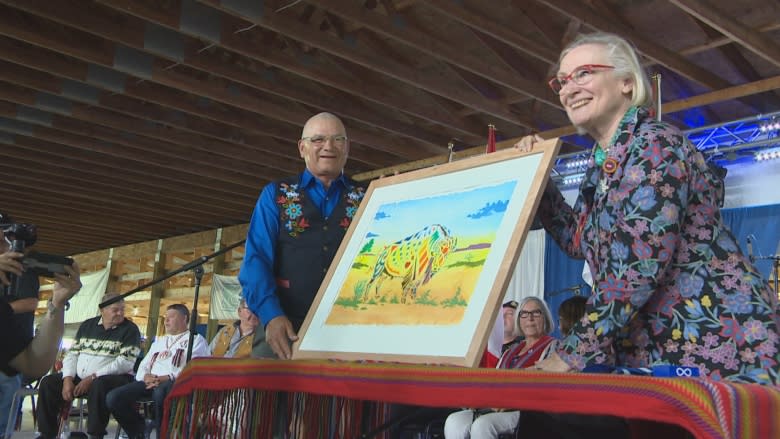Métis Nation signs historic agreement with Canada
The Métis Nation of Saskatchewan has praised the federal government for signing on to a framework agreement to recognize and implement Métis rights under the Canadian constitution.
"All the years that the Métis have been left on the sidelines, for the first time in many years, the federal government, and ourselves, and the team that we have, have come to the point in the Métis nation where real progress is being made," said its president, Glen McCallum.
At the opening ceremony of the Back to Batoche Festival in Saskatchewan on Friday, Minister of Crown-Indigenous Relations Carolyn Bennett joined with McCallum and other Métis leaders to sign a framework agreement on reconciliation with the Métis Nation of Saskatchewan. The move marks the beginning of negotiations to address issues such as Métis' rights to land and resources, education, self-governance, and preservation of culture.
Prime Minister Justin Trudeau has been clear that there is no more important relationship to the federal government than that with its Indigenous peoples, Bennett said, noting this includes First Nations, Métis and Inuit people.
"It means that the relationship must be based on the recognition of rights, respect, co-operation and partnerships," she said.
In the past, the federal government has taken the approach that the Métis people fell under provincial jurisdiction, which the agreement seeks to redress, based on constitutional rights, she said.
"It really is about us saying no, they have Section 35 rights and therefore we as the federal government must be working hard to recognize and implement those rights."
Closing gaps, moving on self-determination
Currently, the federal government is working on legislation to establish a legal framework to ensure Métis rights are implemented and recognized long after the signing of agreements, which would include a dispute resolution framework and an oversight body.
Bennett said it will also address Métis self-governance and self-determination, and work to close the gap between Indigenous and non-Indigenous people when it comes to housing, health, education and economic status.
Those issues go to the heart of the need for the agreement, said McCallum.
"It's very important because of the land claim issue, program issues — and those are the things that are going to be addressed in this framework," he said.



